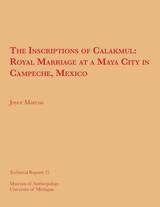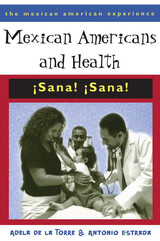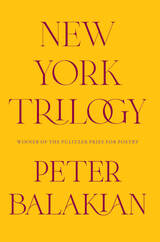4 books about Inscriptions

Inscriptions
Charles William Eliot
Harvard University Press
One of President Eliot’s minor claims to fame is as a writer of numerous inscriptions for all sorts of monuments, memorial tablets, public buildings, churches, and schools. His success in this difficult form of composition was due in large measure to his gift for concise and descriptive phrasing. Frequently during his last years he was asked to list his inscriptional writings, but painstakingly as they had been prepared, he had kept almost no record of them and could no longer recall them. Fifty of them have now been gathered, after considerable research, in this volume as a fitting contribution to the centenary celebration of his birth.
[more]

Inscriptions
After Phenomenology and Structuralism
Hugh J. Silverman
Northwestern University Press, 1997
Positioning itself within the Continental tradition, Inscriptions is an interwoven set of investigations into the differences between phenomenology and structuralism, and a cohesive and thoroughgoing inquiry into the contemporary status of Continental philosophy.
In Inscriptions, Hugh J. Silverman investigates two divergent yet related philosophical movements: phenomenology from the later Husserl through Sartre and Heidegger to Merleau-Ponty, and structuralism from de Saussure through Levi-Strauss and Lacan to Barthes. This reading of the tradition culminates in an assessment of Derrida and Foucault. From this foundation, Silverman moves beyond structuralism and phenomenology, and develops his own philosophical position in the context of semiotics, hermeneutics, and deconstruction. A new preface by the author updates this classic text.
In Inscriptions, Hugh J. Silverman investigates two divergent yet related philosophical movements: phenomenology from the later Husserl through Sartre and Heidegger to Merleau-Ponty, and structuralism from de Saussure through Levi-Strauss and Lacan to Barthes. This reading of the tradition culminates in an assessment of Derrida and Foucault. From this foundation, Silverman moves beyond structuralism and phenomenology, and develops his own philosophical position in the context of semiotics, hermeneutics, and deconstruction. A new preface by the author updates this classic text.
[more]

The Inscriptions of Calakmul
Royal Marriage at a Maya City in Campeche, Mexico
Joyce Marcus
University of Michigan Press, 1987
Calakmul is a large Maya site in the Yucatán Peninsula of southern Mexico, just north of Tikal and the Guatemala border. In the 1980s, Joyce Marcus sketched and photographed the inscriptions on the monuments of Calakmul, in an effort to understand the nature of Maya territorial organization through the hieroglyphic record. Through the inscriptions, she was able to identify a sequence of rulers and royal couples, and their association with temples and other architecture at the site. Foreword by William J. Folan.
[more]

Mexican Americans and Health
¡Sana! ¡Sana!
Adela de la Torre and Antonia Estrada
University of Arizona Press, 2001
By the middle of the twenty-first century, one out of every six Americans will be of Mexican descent; and as health care becomes of increasing concern to all Americans, the particular needs of Mexican Americans will have to be more thoroughly addressed. Mexican Americans and Health explains how the health of Mexican-origin people is often related to sociodemographic conditions and genetic factors, while historical and political factors influence how Mexican Americans enter the health care system and how they are treated once they access it. It considers such issues as occupational hazards for Mexican-origin agricultural workers—including pesticide poisoning, heat-related conditions, and musculoskeletal disorders—and women's health concerns, such as prenatal care, preventable cancers, and domestic violence. The authors clearly discuss the health status of Mexican Americans relative to the rest of the U.S. population, interweaving voices of everyday people to explain how today's most pressing health issues have special relevance to the Mexican American community:
- how values such as machismo, familismo, and marianismo influence care-seeking decisions and treatment of illness;
- how factors such as cultural values, socioeconomic status, peer pressure, and family concerns can contribute to substance abuse;
- how cultural attitudes toward sex can heighten the risk of AIDS—and how approaches to AIDS prevention and education need to reflect core cultural values such as familismo, respeto, and confianza. The book also addresses concerns of Mexican Americans regarding the health care system. These include not only access to care and to health insurance but also the shortage of bilingual and bicultural health care professionals. This coverage stresses not only the importance of linguistic competency but also the need to understand folklore illnesses, herbal remedies, and spiritual practices that can delay the treatment of illness and either complement or compromise treatment. Of all the issues that face the contemporary Mexican American community, none is as important to its very survival as health and health care. This timely book gives readers a broad understanding of these complex issues and points the way toward a healthier future for all people of Mexican origin. Mexican Americans and Health and Chicano Popular Culture are the first volumes in the series The Mexican American Experience, a cluster of modular texts designed to provide greater flexibility in undergraduate education. Each book deals with a single topic concerning the Mexican American population. Instructors can create a semester-length course from any combination of volumes, or may choose to use one or two volumes to complement other texts.
- how values such as machismo, familismo, and marianismo influence care-seeking decisions and treatment of illness;
- how factors such as cultural values, socioeconomic status, peer pressure, and family concerns can contribute to substance abuse;
- how cultural attitudes toward sex can heighten the risk of AIDS—and how approaches to AIDS prevention and education need to reflect core cultural values such as familismo, respeto, and confianza. The book also addresses concerns of Mexican Americans regarding the health care system. These include not only access to care and to health insurance but also the shortage of bilingual and bicultural health care professionals. This coverage stresses not only the importance of linguistic competency but also the need to understand folklore illnesses, herbal remedies, and spiritual practices that can delay the treatment of illness and either complement or compromise treatment. Of all the issues that face the contemporary Mexican American community, none is as important to its very survival as health and health care. This timely book gives readers a broad understanding of these complex issues and points the way toward a healthier future for all people of Mexican origin. Mexican Americans and Health and Chicano Popular Culture are the first volumes in the series The Mexican American Experience, a cluster of modular texts designed to provide greater flexibility in undergraduate education. Each book deals with a single topic concerning the Mexican American population. Instructors can create a semester-length course from any combination of volumes, or may choose to use one or two volumes to complement other texts.
[more]
READERS
Browse our collection.
PUBLISHERS
See BiblioVault's publisher services.
STUDENT SERVICES
Files for college accessibility offices.
UChicago Accessibility Resources
home | accessibility | search | about | contact us
BiblioVault ® 2001 - 2025
The University of Chicago Press









